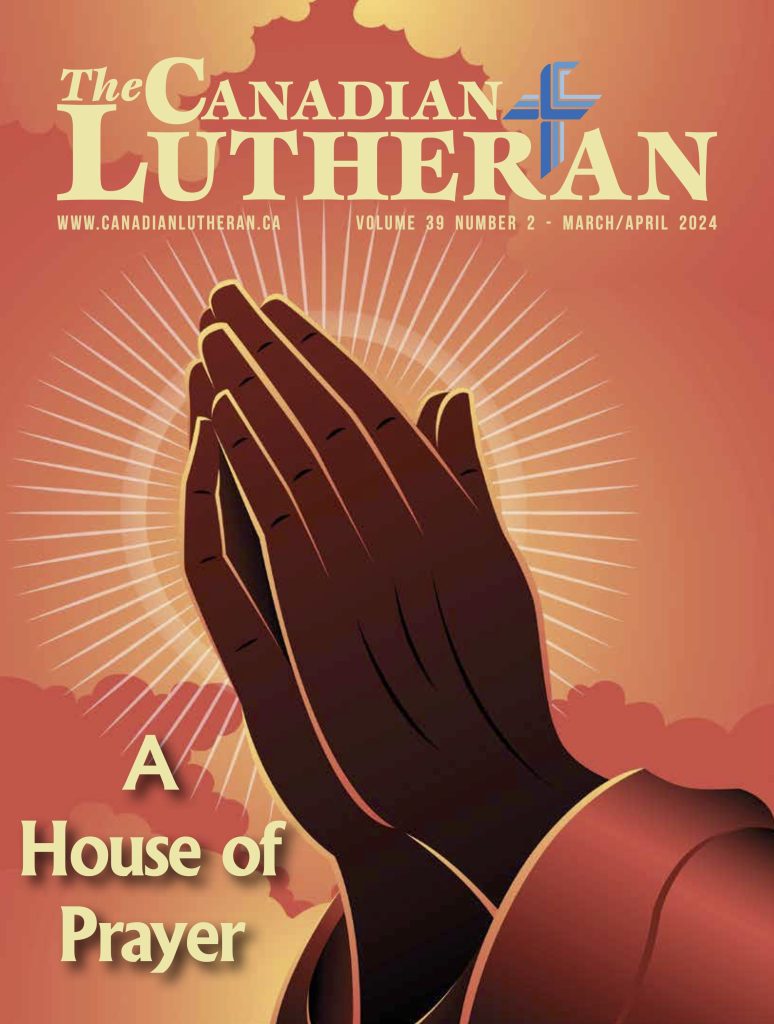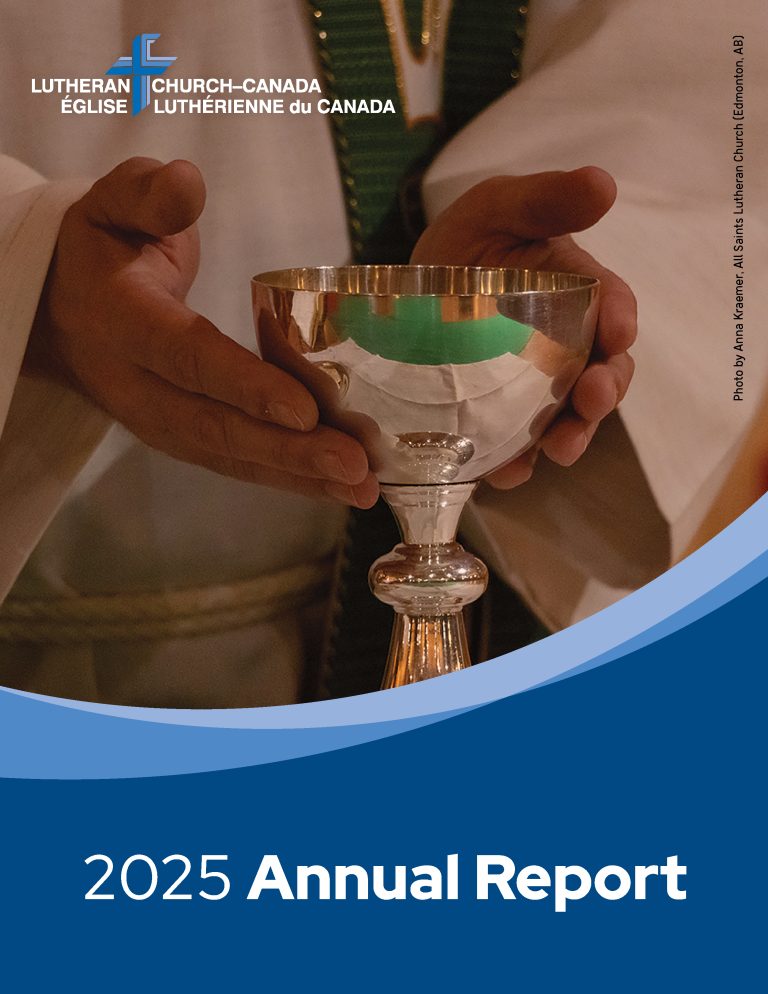A House of Prayer
 by Mathew Block
by Mathew Block
In his Gospel, St. Matthew tells us that the death of Christ was accompanied by a series of miracles: unnatural darkness (27:45); an earthquake (27:51); and even a number of dead people who were brought back to life (27:52). But amidst these great signs, there is one that on the surface seems much less impressive: a curtain torn in two (27:51).
Of course, there is more going on here than just the tearing of fabric. The Temple curtain separated the Holy of Holies, where God’s presence dwelled in a powerful way, from the rest of the building. Only the high priest could enter into this place, and then only once a year to make atonement for the sins of Israel (Leviticus 16). But through Jesus’ death, this dividing curtain is torn down. Through Christ, we may enter in to the presence of God directly. He no longer restricts His presence to the Temple, but comes out to be with us where we are.
This fulfills Jesus’ words to the Samaritan woman, when He told her that a time was coming when the worship of God would no longer be restricted to Jerusalem but that the people of God would instead worship Him “in spirit and in truth” (John 4:21-24). Indeed, the Temple in Jerusalem would soon be destroyed—and not for the first time.
But this “house of prayer for all nations”—as Jesus and the prophets called the Temple (e.g., Matthew 21:13)—was not destroyed. It was transfigured. No longer restricted to Jerusalem, this house of prayer is erected anew every time Christians gather together in Jesus’ name. “For where two or three are gathered in my name,” Jesus promised, “there am I among them” (Matthew 18:20).
That promise gives us courage to sing and pray to God in all circumstances, trusting that He is always with us. Remember the trials Paul and Silas faced in Philippi: they were beaten and thrown into prison. And yet even there they spent their time “praying and singing hymns to God” (Acts 16:25). Even there—with bruises fresh and their feet fastened in stocks—they entered into the house of prayer and found God very much at home.
Even there—with bruises fresh and their feet fastened in stocks—they entered into the house of prayer and found God very much at home.
That mobile home of prayer is with us too, wherever we may go. Like the Tabernacle, which accompanied the Israelites through the wilderness, the house of prayer goes with God’s people everywhere—into our homes when we spend time in devotions, into coffee shops when Christian friends talk and pray together, into cars and buses and streets as we pray for the people we meet in daily life.
And this house of prayer is with us most clearly and powerfully in the corporate life of the Church—when Christians across the world gather together in their local congregations to receive God’s good gifts in Word and Sacrament, pouring out their worship and praise in return. Though separated by distance, language, and culture, Christians throughout the world are all made one in Christ (Galatians 3:28), and through Him we truly become “a house of prayer for all nations.”
Through His death and resurrection, Jesus has freed us from sin and made us members of His own household. “For through Him we both have access in one Spirit to the Father,” St. Paul explains, “So then you are no longer strangers and aliens, but you are fellow citizens with the saints and members of the household of God, built on the foundation of the apostles and the prophets, Christ Jesus Himself being the cornerstone, in whom the whole structure, being joined together, grows into a holy temple in the Lord. In Him you also are being built together into a dwelling place for God by the Spirit” (Ephesians 2:18-22).
St. Peter says the same. Together, we “like living stones are being built up as a spiritual house, to be a holy priesthood, to offer spiritual sacrifices acceptable to God through Jesus Christ” (1 Peter 2:5). With great and undeserved love, Jesus saves us and builds us up into an everlasting temple of the Lord. And we in thanks freely offer back our prayer and praise to the God of our salvation.
In this issue, we meditate on the prayer and praise which spring forth in Christ’s Church. Rev. Dr. John Kreutzwieser invites us to look at the Lord’s Prayer from a new perspective (page six). We meditate on a classic examination of prayer written by the great Lutheran theologian Johann Gerhard (page nine). And Rev. Dr. Thomas Winger reflects on the 500th anniversary of the publication of the first Lutheran hymnal (page twelve).
 Heavenly Father, thank You for making us all one through the death and resurrection of Your Son, Jesus Christ. Establish Him as our solid foundation, and send Your Holy Spirit to build us up ever more into Your holy temple. And teach us to “pray, praise, and give thanks” in all circumstances, in thanks for Your great mercy. Amen.
Heavenly Father, thank You for making us all one through the death and resurrection of Your Son, Jesus Christ. Establish Him as our solid foundation, and send Your Holy Spirit to build us up ever more into Your holy temple. And teach us to “pray, praise, and give thanks” in all circumstances, in thanks for Your great mercy. Amen.
———————
Mathew Block is editor of The Canadian Lutheran and the Communications Manager of the International Lutheran Council (ILC).



